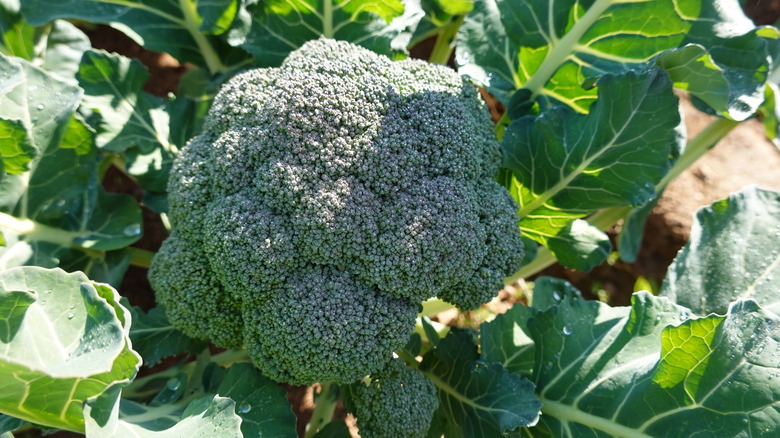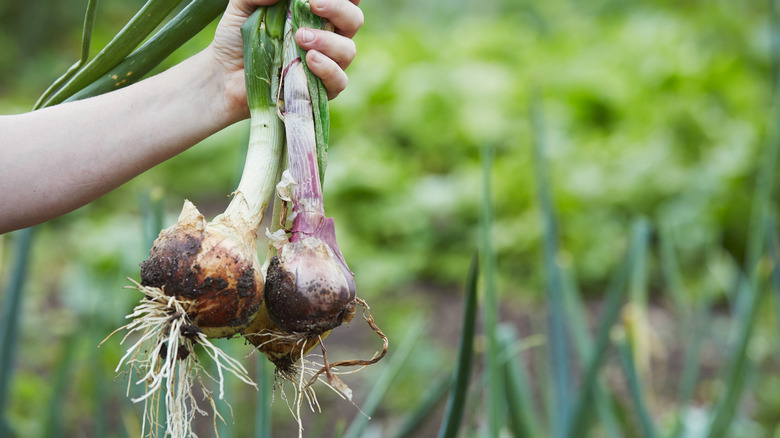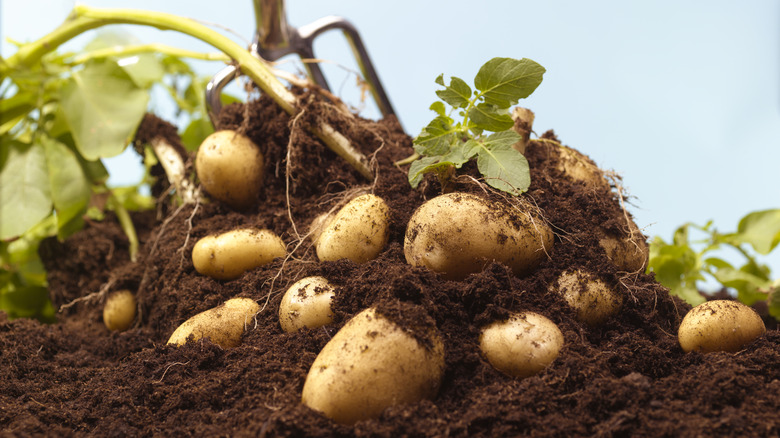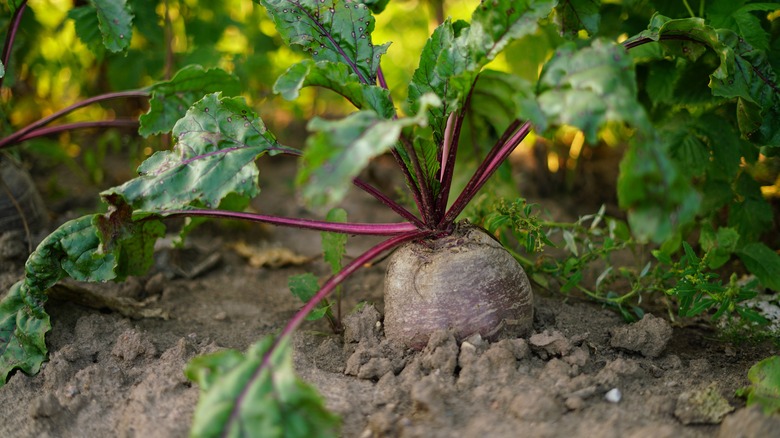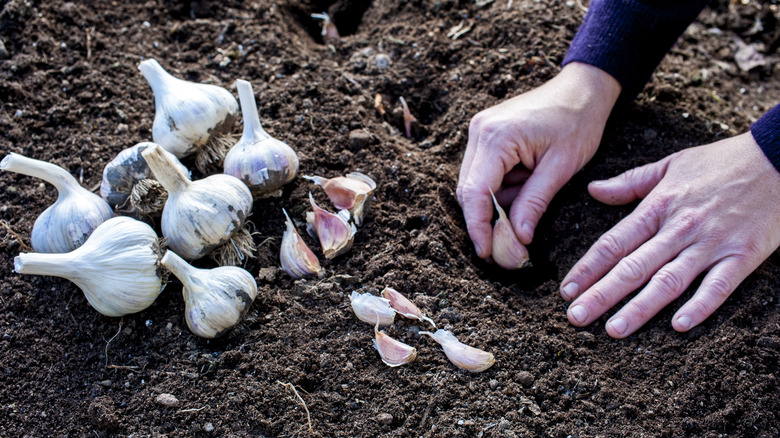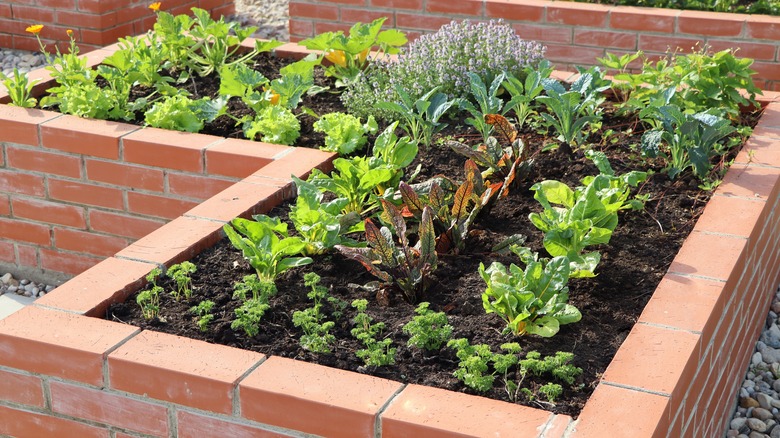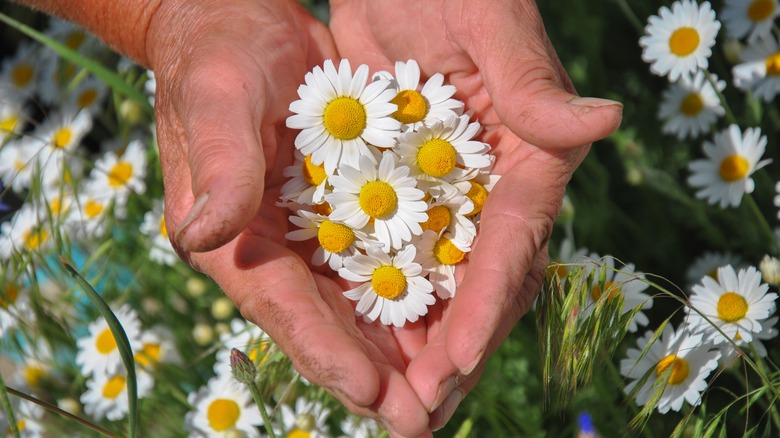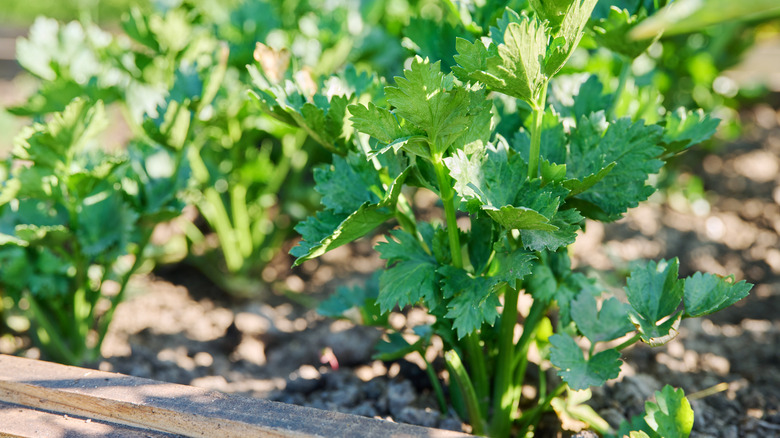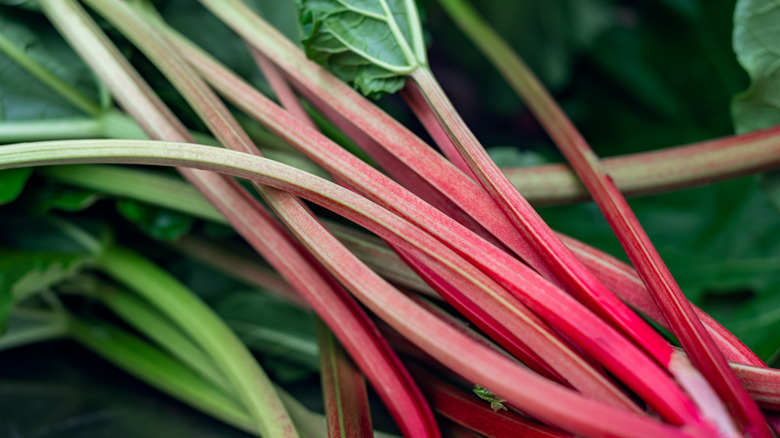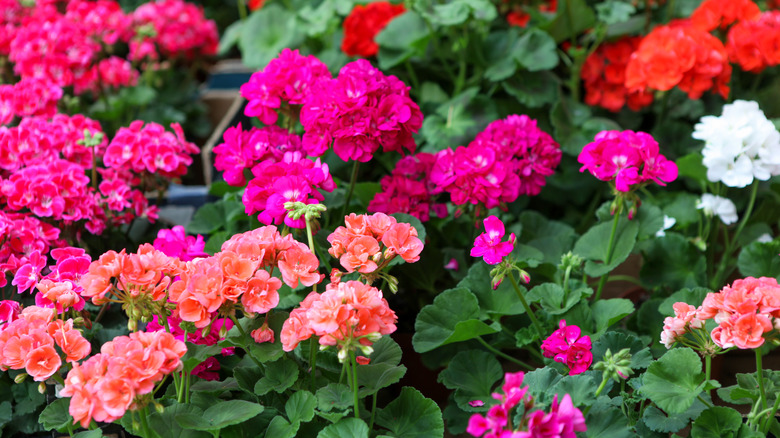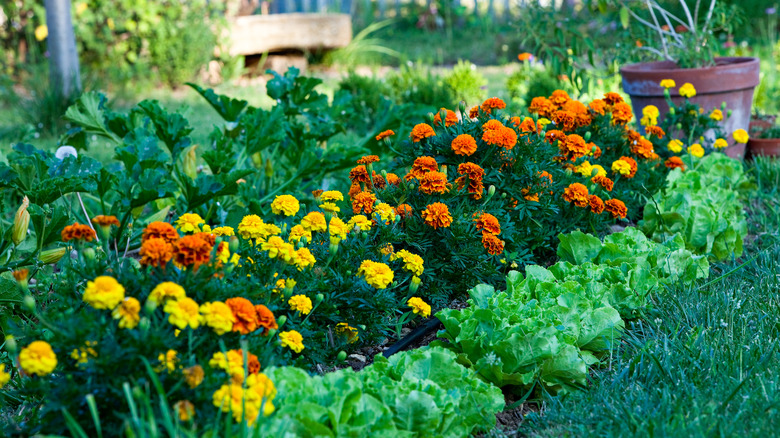Broccoli Will Be Living Its Best Life With These 10 Companion Plants Nearby
Broccoli (Brassica oleracea) is a hardy brassica that's often considered an easy-to-grow plant in a home garden. However, for gardening beginners, trying to grow broccoli can feel quite intimidating since there are so many factors to consider. This vegetable thrives in rich soil, with a pH balance of 6.0 to 6.5. The soil should be well-drained, and you should avoid any soil that's too sandy or runny — got all that? Well, once you've invested the time towards broccoli pre-care, it'll take upwards of 50 days to see results, during which time you have to look out for pests munching on your crop and try to avoid disease from infecting the plant.
While testing the soil and successful planting is a lesson in care, staving off pests and disease is actually something as easy as choosing the right companion plant. Companion plants are specific combinations of plants that thrive next to each other in a garden. Certain plant mixes help boost soil nutrients for one another and even ward off bugs in some instances.
Several plants can help maintain broccoli's health — some even say crops, like onions, boost its flavor. While some choices may seem obvious, there are a couple of unusual companions on this list, such as geraniums and rhubarb. Each companion plant has its own pros (and some cons), but in all, these garden veggies, herbs, and flowers, including chamomile and potatoes, will help your broccoli thrive.
Onions
Onions (Allium cepa) harmonize quite well in a garden with many different crops since their scent deters pests. Planting onions close to broccoli purportedly improves and boosts the flavor of the broccoli, according to some enthusiastic gardeners and cooks, though this may be an old wives tale. In general, onions are great deterrents against brassicas' most prolific insects like cabbage worms, maggots, and loopers. Aside from that, onions are also a versatile ingredient to have in your garden and on hand!
Potatoes
Potatoes (Solanum tuberosum) have a great symbiotic relationship with broccoli in a garden since they both pull different nutrients from the soil and don't compete with each other. While potatoes thrive and yield a high return on phosphates and magnesium, broccoli flourishes in nitrogen-rich soil and loves calcium as well. Both plants overall require quite a bit of heavy "feeding" — meaning they take up large quantities of nutrients — but they don't butt heads.
Beets
Similar to the aforementioned potatoes, beets (Beta vulgaris) also play well with brassicas as companion plants since they, too, require less calcium in the soil than broccoli does. Beets are considered "light feeders," particularly in the calcium department, compared to broccoli, and therefore, they really don't take nutrients away from their Brassica brethren. And while they don't require too many nutrients to grow well in a garden, the payoff is an extremely nutrient-rich vegetable full of health benefits for the consumer.
Garlic
Garlic (Allium sativum) is a powerful plant that works wonderfully to ward off both vampires and bugs with its strongly aromatic, signature scent. Garlic can work well as pest control in your garden and can keep different critters away from your broccoli if planted near one another. As a bonus, garlic is considered a natural mosquito repellent for humans due to the sulfur compounds found in the plant, so the garlic you grow will come in handy in more ways than one! That same sulfur also staves off fungal infections as well, potentially preventing disease from reaching your broccoli.
Herbs
A variety of aromatic herb companion plants, like dill, sage, and rosemary, will have your broccoli thriving. Dill, a member of the parsley (Apiaceae) family, and sage and rosemary, members of the mint (Lamiaceae) family, are a lighter lift to grow since they don't do well in over-fertilized soil. They likely won't compete against broccoli for essential nutrients from the soil. Another plus is that their fragrance also keeps bugs and pests, like slugs, away. If you're just exploring your gardening prowess, herbs are also the perfect type of plant to grow if you don't have a green thumb.
Chamomile
A chamomile's (Matricaria chamomilla) petite flowers aren't just incredibly pretty to look at, but they're also great for your broccoli's health and your garden's overall well-being. Chamomile not only enhances the yield of broccoli, like its herbaceous counterparts, but it attract pollinators to your plants as well. And as we know, pollinators are fantastic for your garden's overall growth, reproduction, and health. If you're hoping to attract more pollinators in your garden overall, then these are the best plants for your future pollinator garden.
Celery
This stalky plant is a great companion to broccoli, and broccoli reciprocates right back. Broccolis' large leaves make for the perfect shady and cool environment where celery (Apium graveolens) thrives, while celery wards off nasty critters, like the white cabbage moth, from broccoli with its strong scent. They both benefit from growing near one another. Just be wary that both plants can grow to be large, so make sure they're not too close together when you plant them initially, or else they may battle against one another for space later in the growing season.
Rhubarb
This pretty-in-pink stalk is not only great in pies but also works as an incredibly effective deterrent against pests in the garden. Insects, like the cabbage/brassica whitefly, love broccoli and other leafy greens in the brassica family, but rhubarb (Rheum rhabarbarum) leaves are filled with oxalic acid, a substance that is toxic to many insects. Thus, critters tend to steer clear. Like with celery and potatoes, rhubarb can outgrow its initial space, so ensure that you leave plenty of space between the broccoli and the rhubarb when you plant them so that they both have a chance to thrive.
Geraniums
Geraniums brightly colored and clustered flowers bloom in the summer and are both pleasing to the eye and extremely effective at protecting your broccoli plants. These delicate-looking flowers have a kind of superpower — they can ward off a host of pests that bother brassicas, like cabbage worms, with their distinct aroma. They're known to smell quite astringent to those pesky, invasive critters, which allows geraniums to save your broccoli from unwanted nibbles. These particular flowers are also relatively hardy and can survive well into the colder seasons, bringing a bright pop to your garden for months.
Marigolds
Marigolds (Tagetes) can keep big munchers away from your broccoli, like geraniums do, but with their overwhelmingly spicy-sweet scent. As you might've guessed, marigolds are also great at attracting pollinators, and the flowers' bright colors additionally offer some camouflage for broccoli to hide among. Overall, marigolds benefit many different vegetables in your garden, so consider planting a marigold border around the perimeter of your plantings. The flowers' beautiful yellow and orange colors are perfect for fall décor, so try adding some marigolds from your garden to your next fall-themed centerpiece, too.
